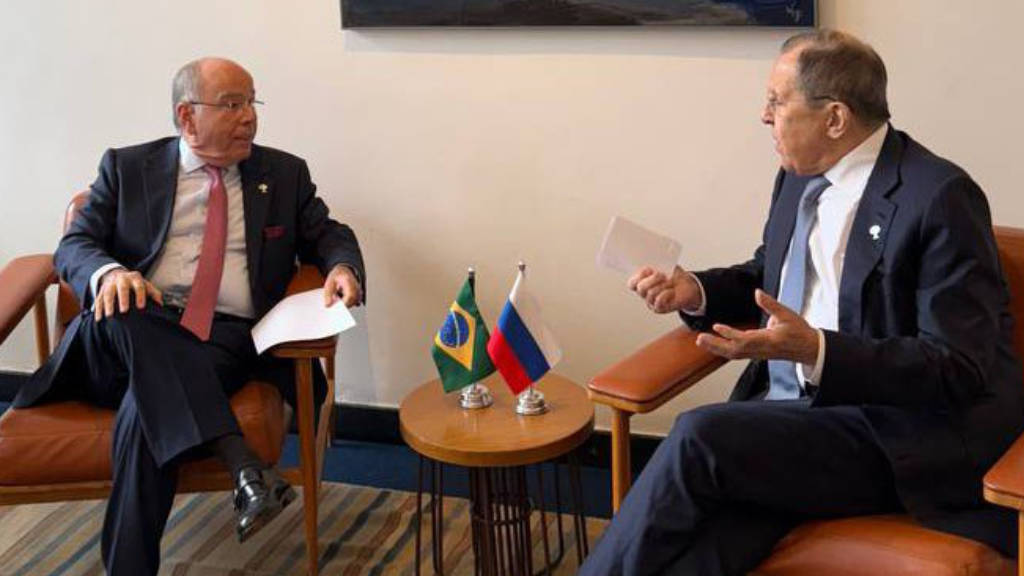The Russian Foreign Minister, Sergey Lavrov, met with Mauro Vieira, the Foreign Minister Brazil on the sidelines of the BRICS summit in Rio de Janeiro. Brazil is a founding member of BRICS and the host country of this year’s event.
During their conversation, Lavrov and Viera discussed upcoming Russian-Brazilian dialogue, and coordinated their actions in key areas of Moscow-Brasilia interaction at major multilateral platforms, including preparations for the 30th session of the Conference of the Parties (COP 30) to the United Nations Framework Convention on Climate Change (Belem, November 10−21).
Brazil-BRICS Trade
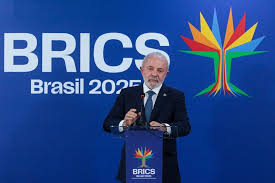
Last year, Brazil’s trade with BRICS nations reached US$210 billion, representing 35% of its total trade. Brazilian exports to BRICS reached US$121 billion (36% of total exports), while imports from BRICS amounted to US$88 billion (34% of total imports).
Russia-BRICS Trade
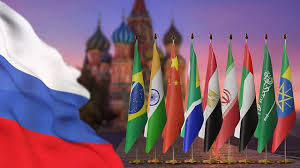
In 2024, Russia also saw a significant increase in trade with BRICS nations, with a focus on using national currencies for transactions. The share of the ruble and other BRICS countries’ currencies in trade reached 90%. The multilateral trade volume between Russia and the ten full member BRICS countries increased by 14.7% in 2024, reaching an estimated US$357 billion.
Brazil-Russia Trade
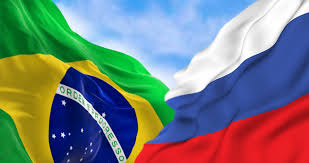
In terms of Russia, Brazil’s bilateral trade volume reached US$12.4 billion in 2024, with Russian exports accounting for US$11 billion. Brazil’s main exports to Russia include soybeans, meat, peanuts, coffee, and sugar, while Russia’s primary exports to Brazil are fertilizers and refined petroleum. Brazil relies on Russia for a significant portion of its diesel imports. However, while Brazil is still very much the junior partner in trade volumes, it should be noted that its exports to Russia doubled last year.
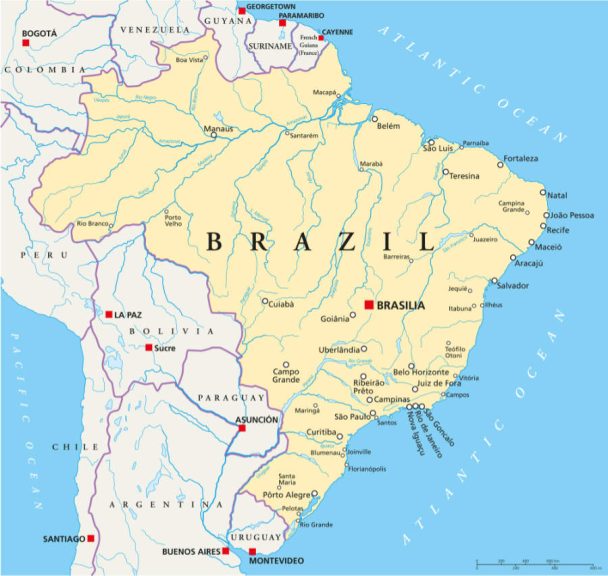
Brazil and Russia have a rapidly growing trade relationship, with Russia also investing heavily in significant industrial sectors such as nuclear energy, and uranium processing. Russian energy, agriculture and fertilizer exports have also boomed in recent years. New Brazilian consumer products are also finding their way into Russian supermarkets, including sugar, fruits, some dairy products, along with wines and spirits.
Russia’s Rosatom have proposed the establishing of nuclear power plants in Rio de Janeiro state. New Thorium reactors (which are less toxic) are essential in developing Russia’s energy sector, most of which is reliant on hydroelectricity.
Russia has also been highly supportive of Brazil’s accession to the UN security council, noting on numerous occasions that it is the most powerful and populous economy in South America.
Further Reading

 Русский
Русский








